
Pathar Masjid
A serene Mughal-era limestone mosque built by Empress Noor Jahan in 1623, offering a peaceful retreat by the Jhelum River.

Highlights
Must-see attractions
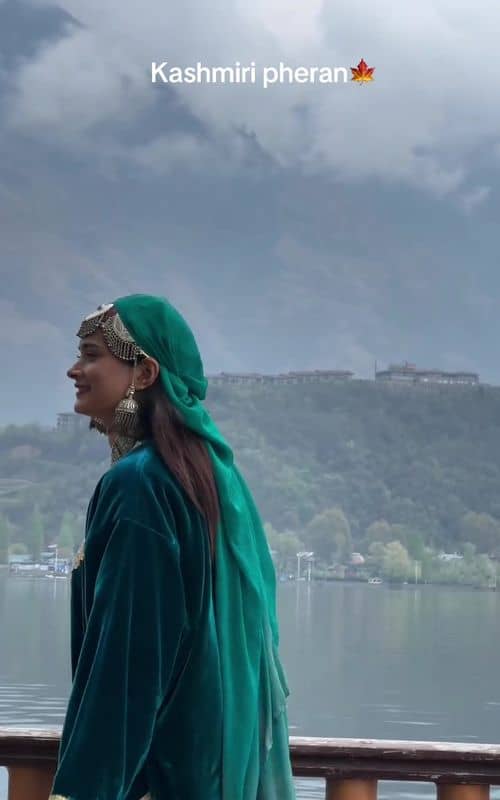
Social
From TikTok & Reddit
Best Time
Soul-nourishing tranquility

Pathar Masjid
Best Time
Soul-nourishing tranquility

Highlights
Must-see attractions
A serene Mughal-era limestone mosque built by Empress Noor Jahan in 1623, offering a peaceful retreat by the Jhelum River.
"A beautiful and peaceful place that offers a calm environment for prayer and reflection."
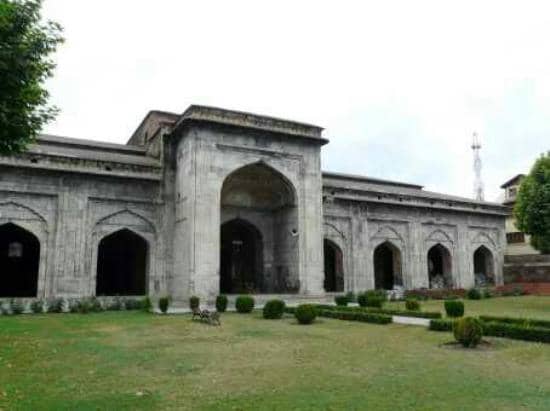
🎯 Embrace the Calm
Visit during summer evenings for a soul-nourishing experience. Stay for Asr prayer and enjoy the peace until Maghrib.
🏛️ Mughal Architectural Gem
Appreciate the unique limestone construction and nine-arch facade, a testament to Empress Noor Jahan's vision.
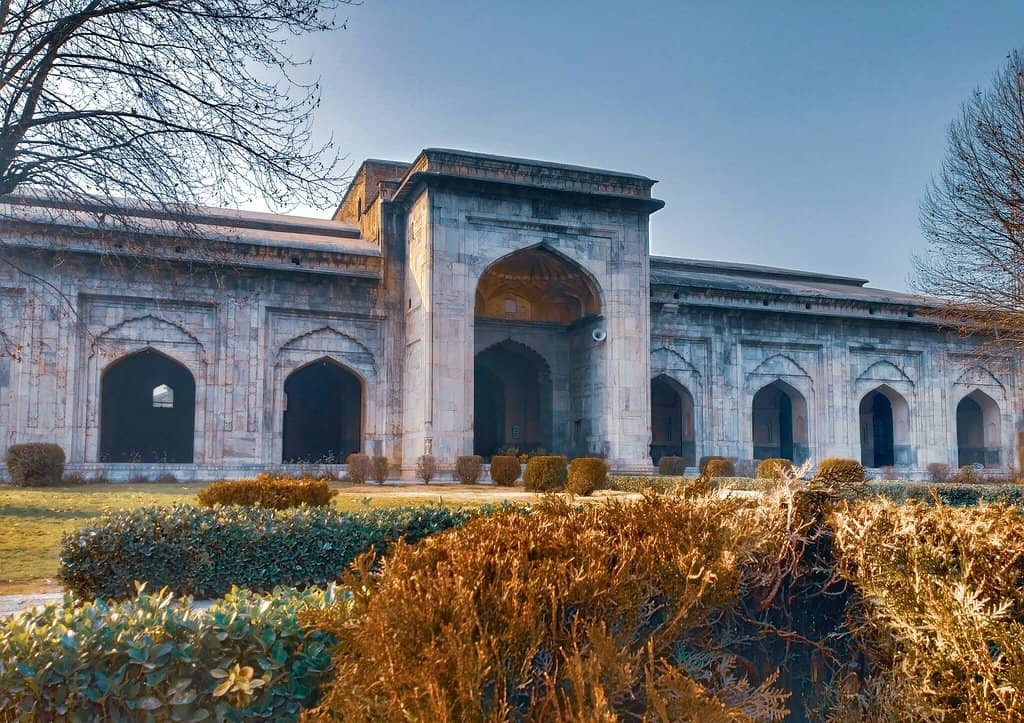
Highlights
Discover the most iconic attractions and experiences
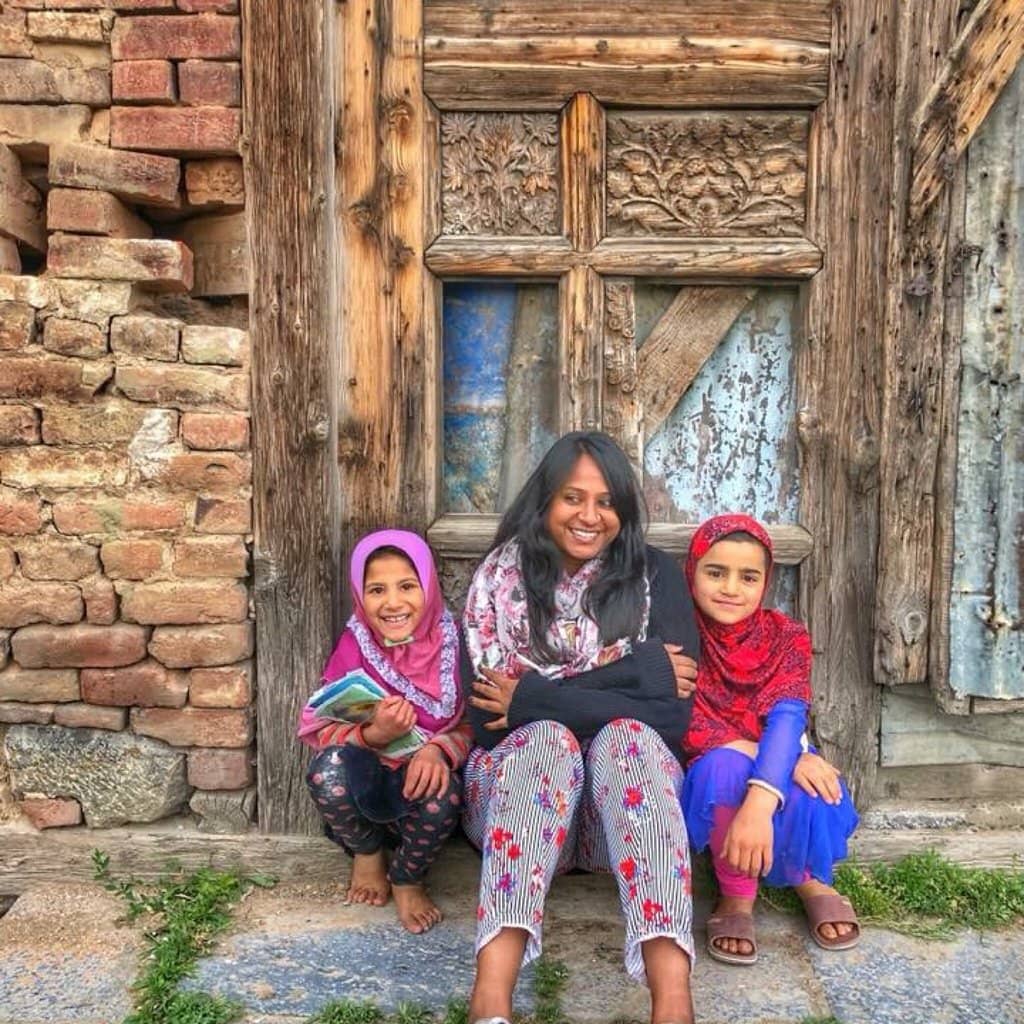
Nine Arches Facade
Main Entrance
Admire the striking symmetry of the nine limestone arches, a signature of Mughal architecture.

Limestone Architecture
Exterior
Experience the unique beauty of this mosque built entirely from grey limestone, a departure from typical wooden structures.
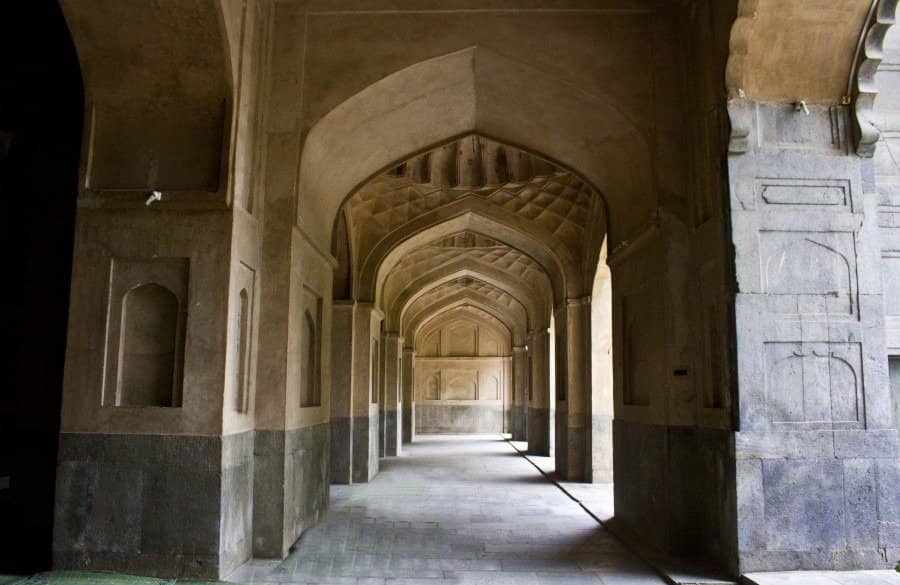
Riverside Location
Left Bank of River Jhelum
Enjoy the tranquil setting on the banks of the Jhelum River, offering a peaceful escape.
Plans like a pro.
Thinks like you
Planning Your Visit
Timing is Key for Tranquility
Respectful Attire and Behavior
Best Times
Insider Tips
from TikTok, Instagram & Reddit
🎯 Embrace the Calm
Visit during summer evenings for a soul-nourishing experience. Stay for Asr prayer and enjoy the peace until Maghrib.
🏛️ Mughal Architectural Gem
Appreciate the unique limestone construction and nine-arch facade, a testament to Empress Noor Jahan's vision.
🌿 Serene Riverside Setting
The mosque's location by the Jhelum River offers a peaceful ambiance, perfect for reflection.
🚶♀️ Respectful Visit
Dress modestly and maintain a quiet demeanor to honor this active place of worship.
Tips
from all over the internet
🎯 Embrace the Calm
Visit during summer evenings for a soul-nourishing experience. Stay for Asr prayer and enjoy the peace until Maghrib.
🏛️ Mughal Architectural Gem
Appreciate the unique limestone construction and nine-arch facade, a testament to Empress Noor Jahan's vision.
🌿 Serene Riverside Setting
The mosque's location by the Jhelum River offers a peaceful ambiance, perfect for reflection.
🚶♀️ Respectful Visit
Dress modestly and maintain a quiet demeanor to honor this active place of worship.
What Travellers Say
Reviews Summary
Visitors consistently praise Pathar Masjid for its beautiful, peaceful atmosphere and unique limestone architecture. The serene riverside location and historical significance as a Mughal-era monument are frequently highlighted as major draws. While generally well-maintained, some may find the interior simpler than expected.
"This masjid is a beautiful and peaceful place that offers a calm environment for prayer and reflection. The interior is simple yet elegant, and it’s always clean and well cared for. The prayer area is spacious and provides a comfortable atmosphere to focus and connect spiritually. The architecture creates a soothing ambiance that helps you feel at ease. It’s a place where one can truly find a sense of peace and calm away from the distractions of daily life."
Hanan Muzaffar
"Pather Masjid, also known as the Stone Mosque, is a significant historical and architectural site located in Srinagar, the summer capital of Jammu and Kashmir, India. Here are some key details and historical aspects about Pather Masjid:
Historical Background
1. Construction: The mosque was constructed in 1623 by Empress Noor Jahan, the wife of Mughal Emperor Jahangir. It is one of the many contributions of the Mughal dynasty to the architectural heritage of Kashmir.
2. Architect: The mosque was designed by Malik Hyder, an architect who was brought from Persia. His influence is evident in the Persian architectural style seen in the mosque.
3. Purpose: Pather Masjid was built primarily for the local Muslim population and served as a significant place of worship during the Mughal era.
Architectural Details
1. Material: True to its name, Pather Masjid is constructed entirely of grey limestone, which was a popular building material at the time.
2. Design: The mosque features traditional Mughal architectural elements, such as intricate carvings, arched windows, and a large central dome. The use of stone and the intricate detailing highlight the skill of the craftsmen of that era.
3. Structure: The mosque has a rectangular plan with a series of nine arches in the façade, creating an impressive visual symmetry. The central arch is larger than the others, emphasizing the main entrance.
4. Interiors: The interiors of the mosque are relatively simple compared to its exterior. The prayer hall is spacious and designed to accommodate a large number of worshippers.
Significance
1. Cultural Importance: Pather Masjid is an important cultural and historical site in Srinagar, reflecting the rich Mughal heritage of the region. It stands as a testament to the architectural ingenuity and the aesthetic sensibilities of the Mughal period.
2. Contemporary Relevance: While it may not be as active as a mosque today, it remains a significant tourist attraction and a symbol of the historical confluence of Persian and Indian architectural styles.
3. Preservation: Efforts have been made to preserve the mosque as a historical monument, although it has faced challenges due to environmental factors and the passage of time.
Pather Masjid continues to be a symbol of the rich cultural and architectural legacy of Kashmir, drawing visitors and historians interested in the region's Mughal history and heritage."
Hussnain ali Naqvi
"A beautiful Mughal Era mosque, Pathar Masjid is a stone mosque built by Empress Noor Jahan in 1623. The mosque stands out owing to its distinctive limestone architecture. While the landscape of Srinagar is predominantly dotted with wooden structures, the mosque stands proud as a testament to the splendour of the Mughal era. One other feature that sets it apart is that the mosque lacks the traditional pyramidal roof and has nine mehraabs (arches). A legend states that when the empress was asked how much the mosque cost, she replied indirectly, pointing to her jewel-studded shoes, and said, "As much as that"!
The mosque is situated on the left bank of River Jhelum in Nowhatta area. The mosque' surroundings are pristine, giving a feeling of peace and tranquility"
divya shetty
What People Like
What People Dislike
Frequently Asked Questions
🚇 🗺️ Getting There
Pathar Masjid is located in the old city of Srinagar, on the left bank of the River Jhelum, opposite Khanqah-e-Moula. You can reach it by auto-rickshaw or taxi from other parts of Srinagar.
While direct public transport might be limited to the immediate vicinity, local buses can get you close to the old city area, from where you can take a short walk or a cycle rickshaw.
From Srinagar International Airport (SXR), hiring a pre-paid taxi or using a ride-sharing app is the most convenient way to reach Pathar Masjid. The journey takes approximately 45-60 minutes depending on traffic.
Parking can be challenging in the old city. It's advisable to ask your driver to drop you as close as possible and be prepared for a short walk.
Depending on your starting point, a walk might be possible, especially if you are visiting nearby sites like Jamia Masjid or Khanqah-e-Moula. Check a map for the best walking routes.
🎫 🎫 Tickets & Entry
No, there is no entry fee to visit Pathar Masjid. It is a functioning mosque and a historical monument, open to visitors free of charge.
Pathar Masjid is generally open from sunrise to sunset. However, it is a place of worship, so it's best to visit outside of prayer times.
No advance booking is required as there is no admission fee. You can visit anytime during its open hours.
While you can technically be present, it's respectful to avoid visiting during peak prayer times to allow worshippers their space and quiet.
Yes, Pathar Masjid is open on weekends and public holidays. However, it's always a good idea to check for any specific local observances that might affect access.
📸 📸 Photography
Photography is generally permitted inside and outside the mosque, but always be mindful of worshippers and avoid intrusive photography.
The nine-arch facade, the riverside view, and the intricate limestone details offer excellent photographic opportunities.
Drone photography is typically not allowed in sensitive areas or near religious sites without prior permission from authorities.
Golden hours, early morning or late afternoon, offer beautiful lighting for capturing the mosque's architecture and serene surroundings.
While not explicitly forbidden, it's best to be discreet with tripods to avoid disturbing other visitors or worshippers.
🎫 🕌 Onsite Experience
Pathar Masjid showcases Mughal architecture, characterized by its limestone construction, nine arches, and a simple yet elegant design, influenced by Persian styles.
Built in 1623 by Empress Noor Jahan, it's a significant Mughal-era monument reflecting the architectural heritage of Kashmir.
Yes, visitors often describe it as a beautiful and peaceful place offering a calm environment for prayer and reflection.
The interior is relatively simple, with a spacious prayer hall designed to accommodate worshippers, creating a soothing ambiance.
Basic facilities might be limited. It's advisable to use restrooms before arriving and carry your own water bottle.
🍽️ 🍽️ Food & Dining
You'll find local eateries and street food vendors in the surrounding old city area, offering Kashmiri specialties.
Expect to find traditional Kashmiri cuisine, including Wazwan dishes, kebabs, and local breads.
No, eating is not permitted inside the mosque premises. Please consume food in designated areas outside the mosque.
During Ramadan, families often gather for Iftar in the mosque's lawn area, creating a communal and festive atmosphere.
Yes, many local eateries offer vegetarian dishes, often featuring lentils, vegetables, and rice.
For Different Travelers
Tailored advice for your travel style
👨👩👧 Families with Kids
Tips for families: Bring water and snacks, as dining options directly at the mosque are limited. Ensure children are supervised and encouraged to maintain a respectful quietude. The riverside location can be a point of interest for kids, but always keep a close eye on them near the water.
🚶♀️ Solo Travelers & Spiritual Seekers
Recommendations: Take your time to sit in the prayer hall or on the lawn, soak in the atmosphere, and appreciate the architectural details. Engage with the local culture respectfully, and consider visiting during prayer times to observe the community's devotion.
📸 Photographers & History Buffs
Photography tips: Visit during the golden hours for the best light. Focus on capturing the intricate details of the stonework and the symmetry of the arches. The contrast between the stone mosque and the natural riverbank provides diverse photographic opportunities.
Deep Dives
In-depth insights and expert knowledge
The Mughal Legacy of Pathar Masjid
The most distinctive feature of Pathar Masjid is its facade adorned with nine gracefully proportioned arches. The central arch is larger, drawing the eye to the main entrance. This symmetrical arrangement, coupled with the clean lines of the limestone, creates a sense of grandeur and serenity. The mosque's interior is intentionally simpler, focusing on providing a spacious and tranquil prayer hall, designed to foster spiritual connection.
While it may not be as actively frequented for daily prayers as some other mosques today, Pathar Masjid remains a vital historical and cultural landmark. It draws visitors interested in Mughal history, architecture, and the rich heritage of Srinagar. Its preservation is crucial for understanding the architectural evolution and the artistic confluence that characterized the Mughal period in Kashmir.
Experiencing the Serenity by the Jhelum
Many visitors find the mosque's surroundings to be pristine and conducive to a sense of peace. The lawn area adjacent to the mosque is often described as a place where one can simply lay down and let the soul be soothed. This connection with nature enhances the spiritual experience, making it more than just a visit to a historical monument.
During the summer evenings, the atmosphere by the Jhelum is particularly enchanting. It's a time when the light softens, and the air is pleasant, making it an ideal period to visit and absorb the mosque's serene energy. The proximity to other significant sites like Khanqah-e-Moula further adds to the area's cultural and spiritual importance.
Social
from TikTok, Instagram & Reddit